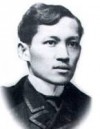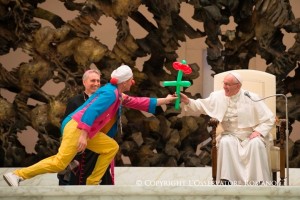
 (In his prison cell, he wrote an untitled poem, now known as "Ultimo Adios" which is considered a masterpiece and a living document expressing not only the hero’s great love of country but also that of all Filipinos. After a mock trial, he was convicted of rebellion, sedition and of forming illegal association. In the cold morning of December 30, 1896, Rizal, a man whose 35 years of life had been packed with varied activities which proved that the Filipino has capacity to equal if not excel even those who treat him as a slave, was shot at Bagumbayan Field. )
(In his prison cell, he wrote an untitled poem, now known as "Ultimo Adios" which is considered a masterpiece and a living document expressing not only the hero’s great love of country but also that of all Filipinos. After a mock trial, he was convicted of rebellion, sedition and of forming illegal association. In the cold morning of December 30, 1896, Rizal, a man whose 35 years of life had been packed with varied activities which proved that the Filipino has capacity to equal if not excel even those who treat him as a slave, was shot at Bagumbayan Field. )
We pray for all families worldwide.
On Christmas day, Pope Francis, in his homily said:
Today the Church once more experiences the wonder of the Blessed Virgin Mary, Saint Joseph and the shepherds of Bethlehem, as they contemplate the newborn Child laid in a manger: Jesus, the Saviour.
On this day full of light, the prophetic proclamation resounds:
“For to us a child is born,
To us a son is given.
And the government will be upon his shoulder;
and his name will be called
“Wonderful Counsellor, Mighty God,
Everlasting Father, Prince of Peace.” (Is 9:6)

He prayed for "all peoples, especially those scarred by war and harsh conflicts that seem stronger than the yearning for peace."
 At his December 28 General Audience, the Holy Father also continued that the catechesis "on Christian hope leads us in these Christmas days to consider the example of Abraham, who, as Saint Paul tells us, “hoped against hope” in God’s promises. Trusting in the Lord’s word that a son would be born to him, Abraham left his home for a new land. Although the fulfilment of God’s promise was long delayed and seemed to be impossible, Abraham continued to hope. Even his discouragement and complaints were a sign of his continuing trust in God. Abraham, our father in faith, shows us that sure trust in God’s word does not mean that we will not have moments of uncertainty, disappointment and bewilderment. It was at such a moment that God appeared to Abraham, called him forth from his tent and showed him the night sky shining with countless stars, assuring him that such would be the number of his descendents. Hope is always directed to the future, to the fulfilment of God’s promises. May the example of Abraham teach us not be afraid to go out from our own tents, our limited outlooks, and to lift our eyes to the stars."
At his December 28 General Audience, the Holy Father also continued that the catechesis "on Christian hope leads us in these Christmas days to consider the example of Abraham, who, as Saint Paul tells us, “hoped against hope” in God’s promises. Trusting in the Lord’s word that a son would be born to him, Abraham left his home for a new land. Although the fulfilment of God’s promise was long delayed and seemed to be impossible, Abraham continued to hope. Even his discouragement and complaints were a sign of his continuing trust in God. Abraham, our father in faith, shows us that sure trust in God’s word does not mean that we will not have moments of uncertainty, disappointment and bewilderment. It was at such a moment that God appeared to Abraham, called him forth from his tent and showed him the night sky shining with countless stars, assuring him that such would be the number of his descendents. Hope is always directed to the future, to the fulfilment of God’s promises. May the example of Abraham teach us not be afraid to go out from our own tents, our limited outlooks, and to lift our eyes to the stars."
Today as we celebrate the feast of the Holy Family, let us pray for all the families worldwide, especially in war torn areas, for those in the Philippines whose members grieve the loss of loved ones because of extrajudicial killings.
| AMRSP Statement |
|
Associaton of Major Religious Superiors in the Philippines OFFICIAL We, the members of the ASSOCIATION OF MAJOR We take this unequivocal stand in the light
To this discussion, we add our voice,
We take as our own this same stand,
We stand with the Catholic Bishops’ The Philippine Bishops observed that while there were urgings Today, as we are once again presented with these same
Proponents of the death penalty argue that
1. The death penalty has not proven to be an
2. The death penalty has no retributive value;
3. The death penalty does not address the
4. The death penalty is not the sole answer to
If the death penalty is once again imposed,
The problem may be more of a matter of
We thus uphold the consistent teaching of
A sign of hope is the Fr. Cielito Almazan OFM and Sr. Regina Kuizon RGS and the AMRSP Executive Board |
